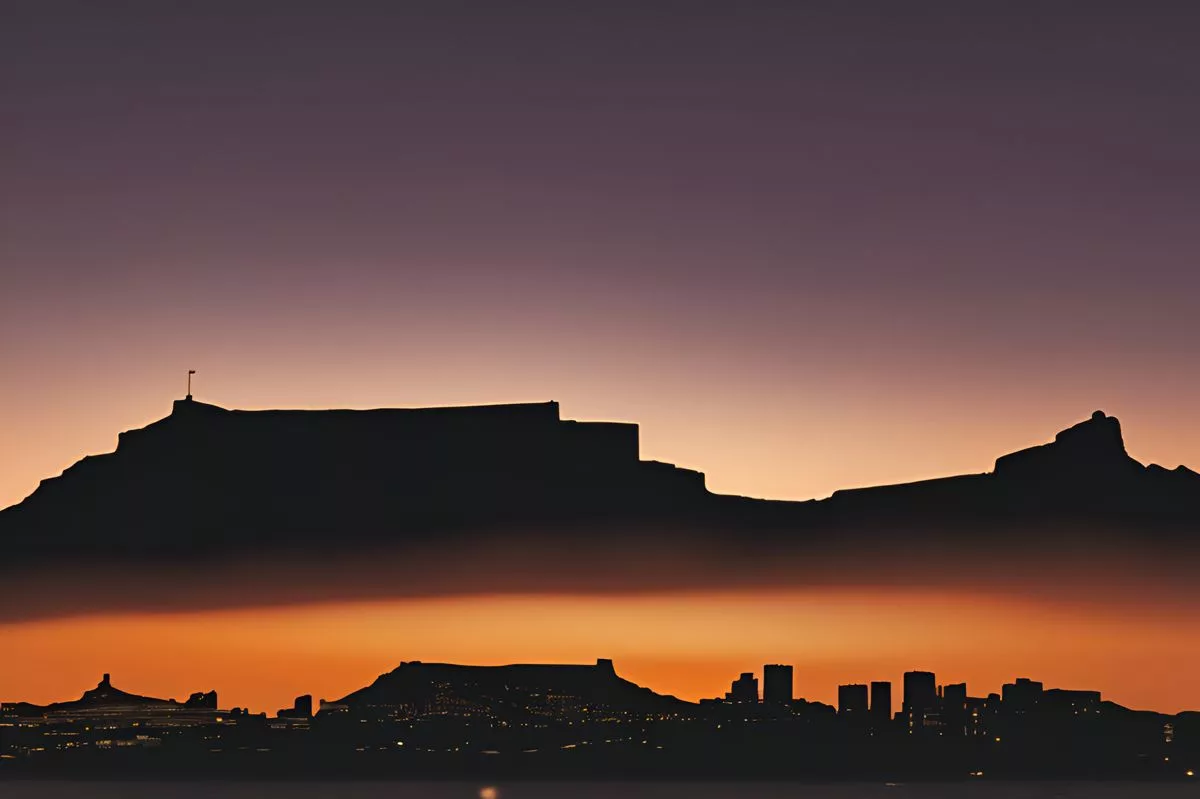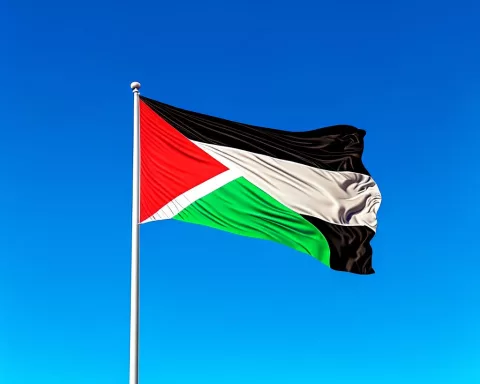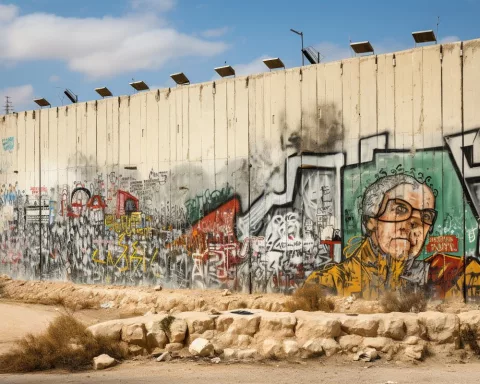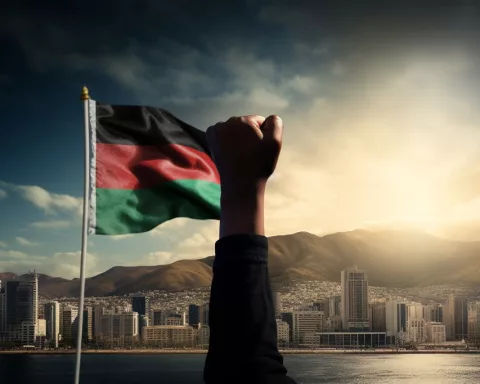Under the majestic Table Mountain, an interfaith vigil at the University of Cape Town brought together many voices, all calling for justice for those affected by the conflict in Gaza. This heartfelt event honored lives lost and drew connections between South Africa’s fight against apartheid and the ongoing struggles of the Palestinian people. Attendees sang powerful songs of resistance and displayed banners demanding change, filling the air with a mix of sorrow and determination. This gathering served not only to mourn but also to inspire hope for a better, united future, reminding everyone that together, they can make a difference.
What was the significance of the interfaith vigil at UCT?
The interfaith vigil at UCT was a powerful gathering that united diverse communities in mourning the loss of life in Gaza while advocating for justice and change. It highlighted the historical connections between South Africa’s apartheid struggle and the Palestinian plight, emphasizing the importance of global solidarity and activism.
The Gathering Beneath Table Mountain
Under the towering presence of Cape Town’s Table Mountain, a significant gathering recently took place at the University of Cape Town. This interfaith vigil, organized by UCT4Palestine, brought together a diverse group of individuals united in their call for justice and change. The event aimed to both commemorate a year of devastating conflict in Gaza and bolster the growing cries for a boycott of Israel. Held in the historic Sarah Baartman Hall, named to honor the enduring legacy of struggle and resilience, the vigil provided a powerful setting for this solemn occasion.
As attendees gathered, they were surrounded by a palpable atmosphere of reverence mixed with defiance. Banners displayed messages such as “No education as normal ’til boycott is formal” and “Never again for anyone. Not in our name.” These statements echoed South Africa’s own history of resistance, drawing direct parallels with the ongoing conflict in Palestine. The vigil’s participants infused the atmosphere with South African anti-apartheid songs like “Senzeni Na,” aligning their calls for justice with global movements for equality.
The vigil’s historical context is deeply entrenched in the enduring conflict between Israel and Palestine, distinguished by significant events including the Nakba. This Arabic term, translating to “catastrophe,” refers to the mass displacement of Palestinians that began in 1948. The event mourned the extensive loss of life over the previous year, particularly highlighting the violence that erupted on October 7, 2023. This conflict began with an attack by Hamas that resulted in the deaths of approximately 1,100 Israelis, followed by an Israeli military response that claimed the lives of at least 41,000 Palestinians in Gaza, as reported by Al Jazeera.
Voices of Mourning and Resistance
Among the speakers at the vigil was Professor Sa’diyya Shaikh from the Religious Studies department, a respected voice who captured the grief and disbelief felt by many. Her poignant words, “We stand here today, in our state of mourning, grief, pain, and sheer disbelief. We stand today remembering the lives taken, over 41,000 human beings murdered,” echoed throughout the hall, emphasizing the collective desire for change. Her address highlighted the increasing momentum of the Boycott, Divestment, and Sanctions (BDS) movement, which aims to apply economic and political pressure on Israel to address human rights violations. This movement is gaining traction worldwide, as people across continents demand accountability from their leaders.
The timing of the vigil coincided with a larger movement of protest, evidenced by a march to Parliament in Cape Town just days prior. This march, marked by fervent calls for the isolation of Israel, demonstrated a growing determination among activists to influence policy and public perception. These events highlight a broader narrative of transnational solidarity and activism, connecting local struggles with global issues.
The vigil’s attendees included many who had lived through apartheid, their presence adding a profound layer of historical continuity. Their personal stories of resilience and resistance served as living reminders of the power of collective action against oppression. These narratives enriched the understanding of current conflicts, offering insight into the emotional and psychological toll of ongoing violence and displacement.
Cultural and Political Shifts
Beyond individual stories, the vigil mirrored larger cultural and political shifts occurring worldwide. The participation of various faith communities underscored the intersectionality of the struggle, demonstrating how different belief systems can unite in pursuit of a shared goal. This convergence reflects a broader historical trend where religious and cultural movements have often played pivotal roles in championing social justice causes.
The media’s role in shaping public perception of the conflict is pivotal. Al Jazeera’s release of a video listing the names of those killed in Palestine over the past year serves as a poignant reminder of individual lives lost amidst statistics. Such initiatives bring a human face to the conflict, countering narratives that might otherwise reduce it to mere numbers. Similarly, The Lancet’s publication suggesting that the official death toll may underestimate the true human cost calls for a re-examination of data and assumptions underlying international responses.
In observing these developments, it’s crucial to recognize the broader historical and artistic movements that inform contemporary activism. The echoes of past liberation struggles resonate in today’s demands for justice, as art, music, and literature continue to inspire and provoke thought. The power of these mediums to convey complex emotions and ideas ensures that the spirit of resistance remains vibrant and accessible.
A Tapestry of Hope and Resilience
The interfaith vigil at UCT stands as a testament to the confluence of history, culture, and activism. Drawing from the rich tapestry of human struggle for dignity and freedom, the event highlighted the interconnectedness of global justice movements. As individuals and communities come together to honor the past and challenge the present, they contribute to an ongoing narrative of hope and resilience that transcends borders and generations.
Such gatherings not only commemorate past struggles but also serve as catalysts for future change. By fostering solidarity and understanding among diverse groups, they lay the groundwork for a more just and equitable world. This vigil, with its blend of historical context and contemporary activism, exemplifies the enduring power of collective action in the face of adversity.
“`markdown
FAQ: United in Vigil – Cape Town’s Call for Justice and Change
What was the significance of the interfaith vigil at UCT?
The interfaith vigil at the University of Cape Town was significant as it united diverse communities in mourning the loss of life in Gaza while advocating for justice and change. It highlighted the historical connections between South Africa’s apartheid struggle and the Palestinian plight, emphasizing the importance of global solidarity and activism.
Who organized the vigil and where was it held?
The vigil was organized by UCT4Palestine and took place in the historic Sarah Baartman Hall at the University of Cape Town, a venue that honors the legacy of struggle and resilience.
What themes were prevalent during the vigil?
The vigil resonated with themes of mourning, resistance, and calls for justice. Attendees displayed powerful banners and sang anti-apartheid songs, emphasizing the connection between historical struggles for freedom and the current fight for Palestinian rights.
Who were some of the notable speakers at the event?
Professor Sa’diyya Shaikh from the Religious Studies department spoke at the vigil. Her address captured the collective grief and desire for change, highlighting the rising momentum of the Boycott, Divestment, and Sanctions (BDS) movement aimed at holding Israel accountable for human rights violations.
How does this vigil relate to the broader context of the Israeli-Palestinian conflict?
The vigil commemorated a year of devastating conflict in Gaza, particularly following the violent events of October 7, 2023. It aimed to raise awareness about the ongoing humanitarian crisis, emphasizing the need for international solidarity and action to address human rights abuses in the region.
What is the impact of the vigil on future activism and change?
The vigil serves as a catalyst for future change by fostering solidarity and understanding among diverse groups. By honoring past struggles and connecting them to contemporary activism, it inspires collective action and contributes to a narrative of hope and resilience in the pursuit of justice.
“`











